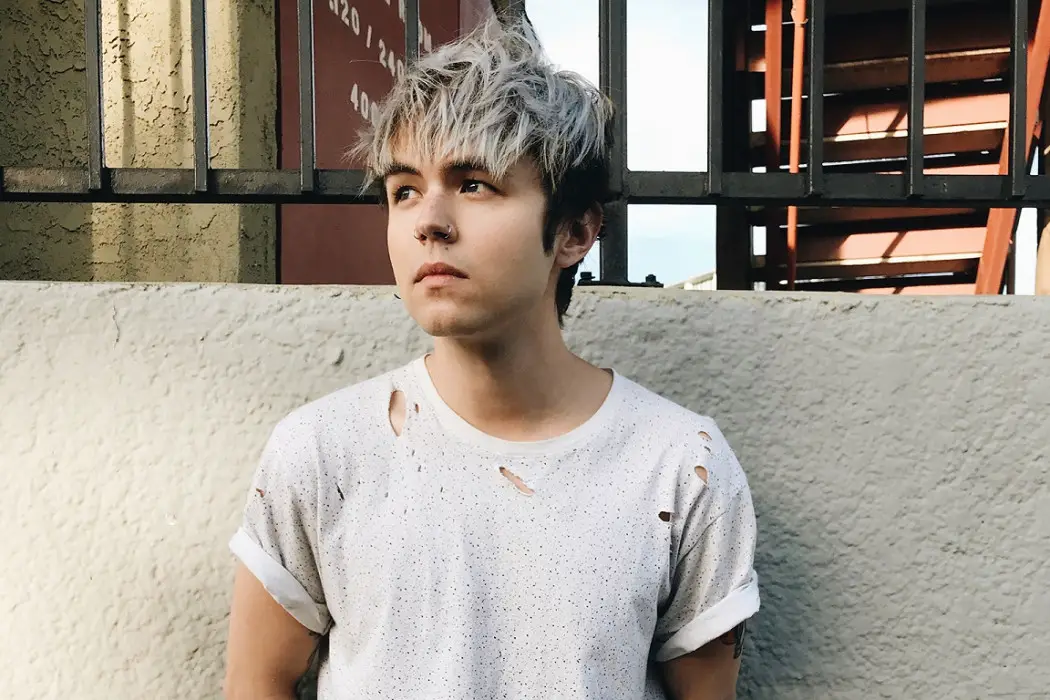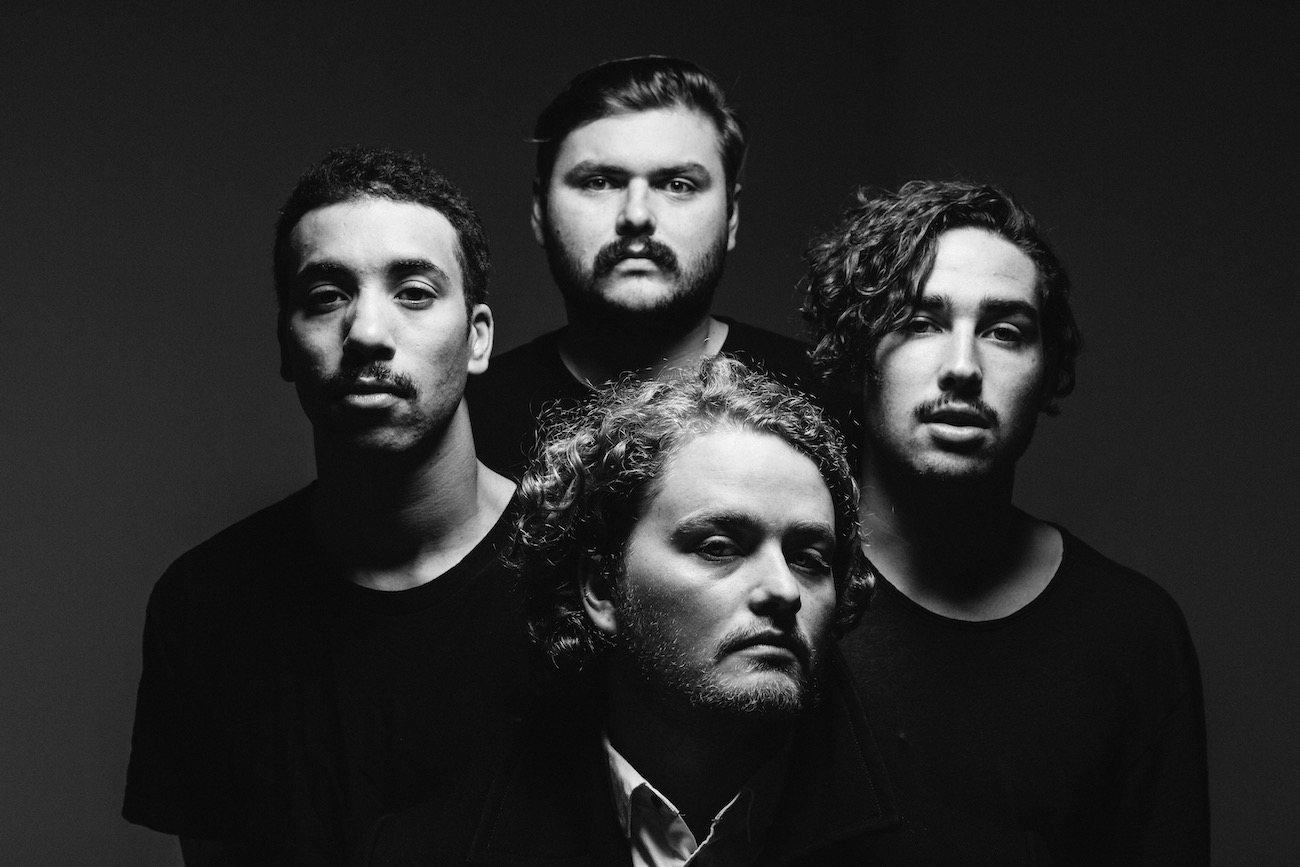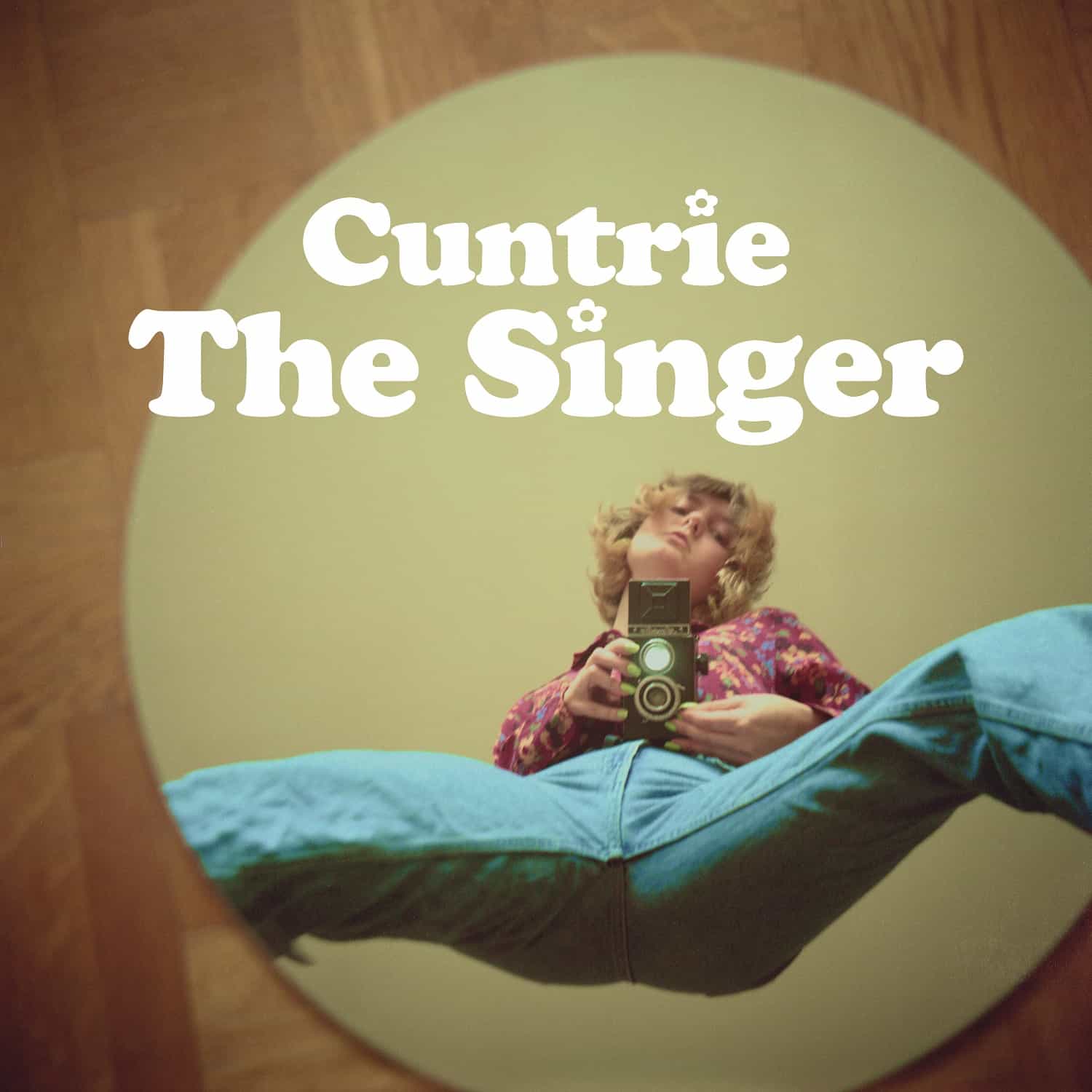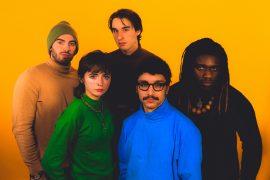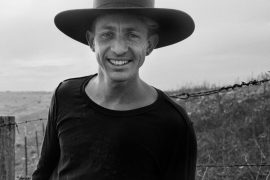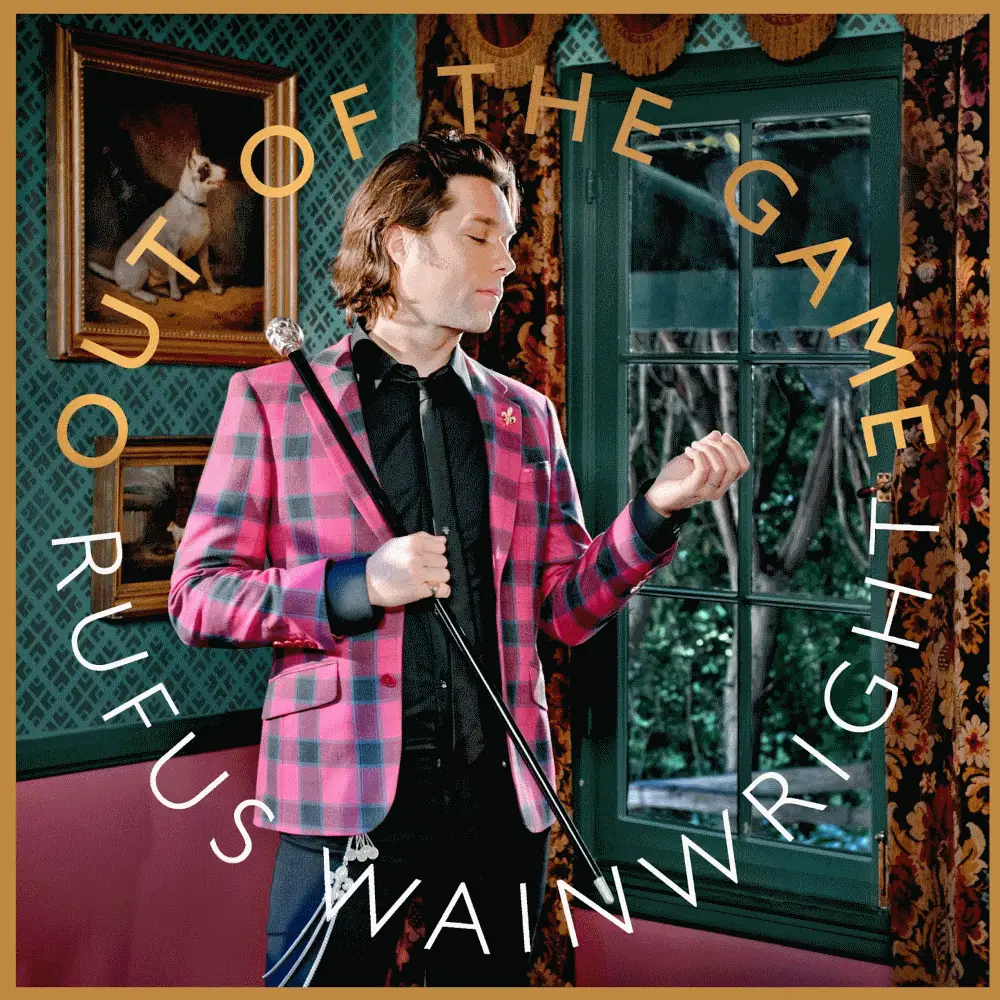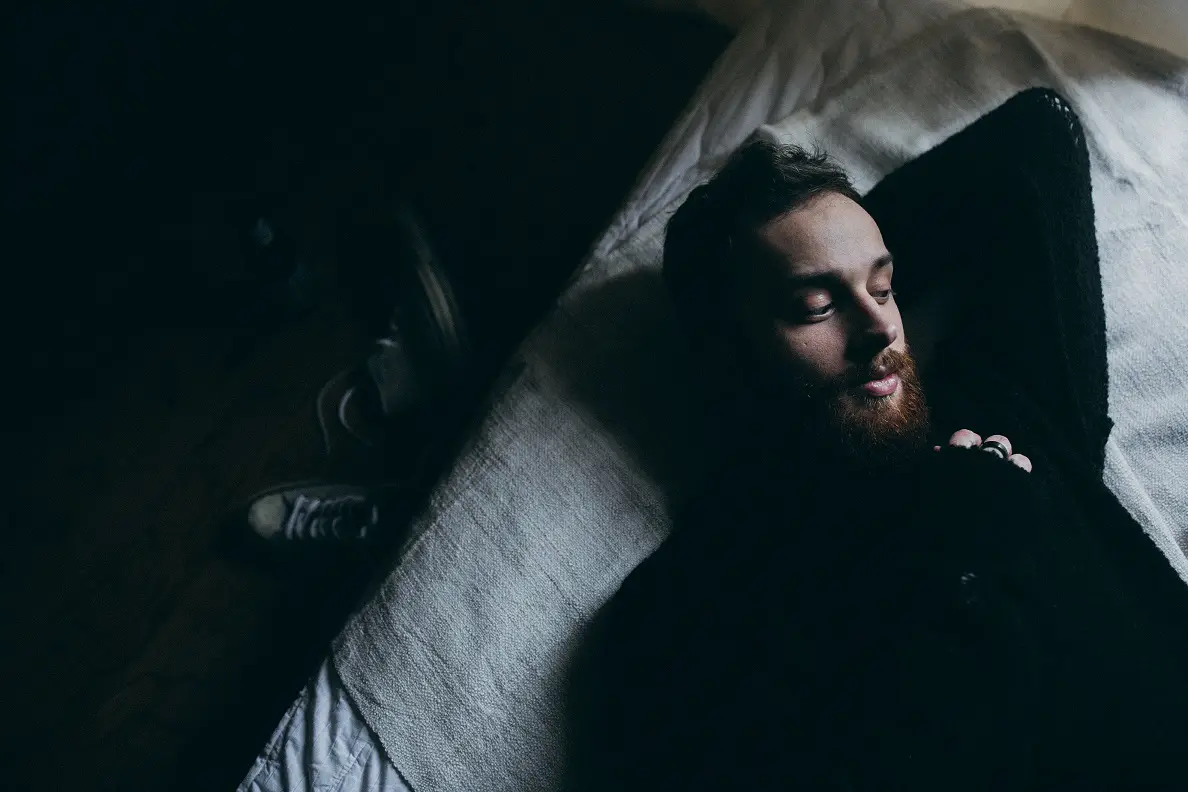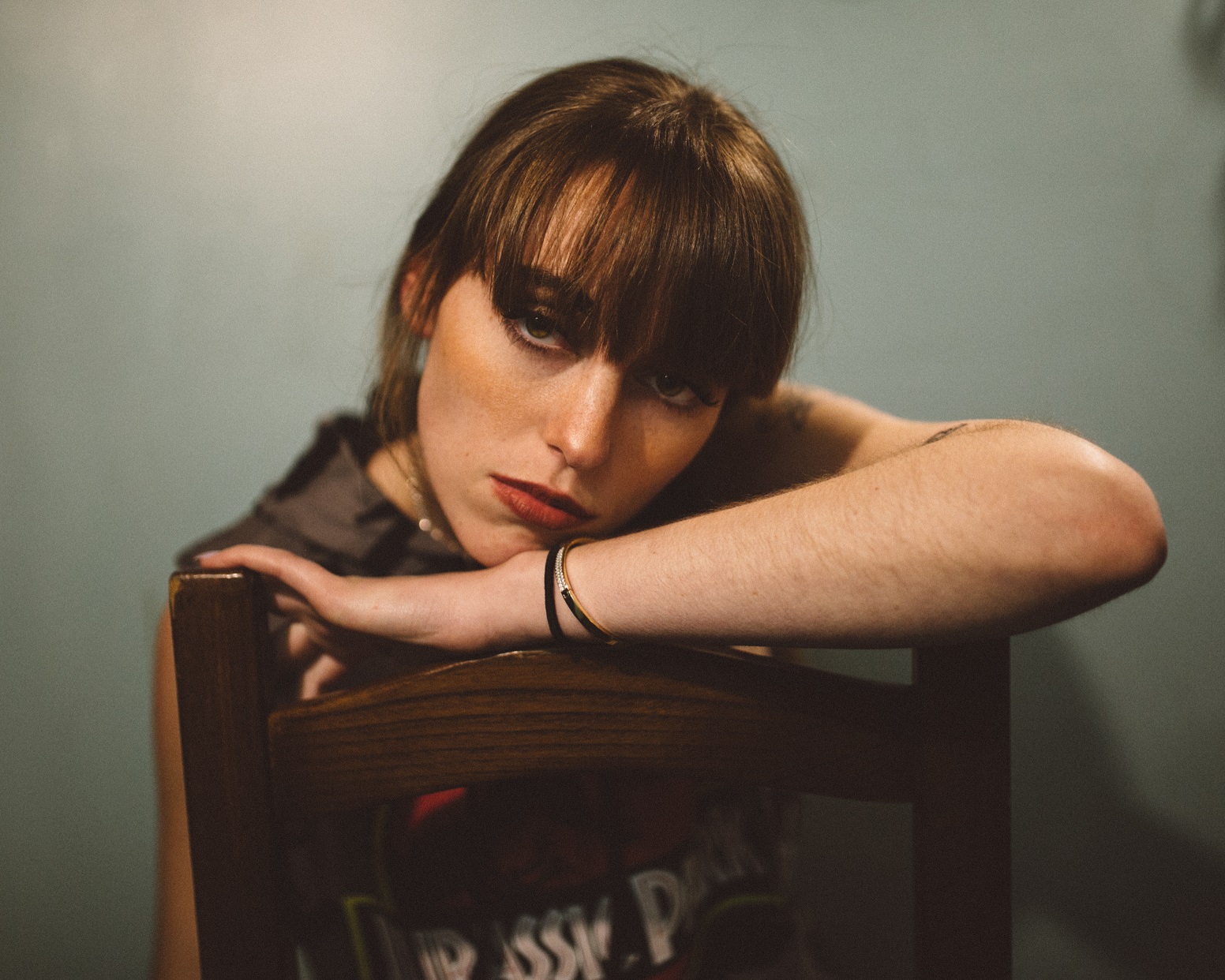The Ready Set may feel established, but that doesn’t mean that Jordan Witzigreuter isn’t ever-evolving.
— —
After a year and change of collaborations, and Jordan Witzigreuter – better known as The Ready Set – is ready to come back into his own. He’s doing it, too, without any real help.
“…[T]hat was my big focus with this; really trying to do everything I could to make it feel like I put everything I had into making this finished product stand up,” Witzigreuter says. “So I think maybe, more than anything, just being around that world sort of just inspired me to step up a little bit more, and really edit myself, and put a lot more time into the backend of the process.”

Witzigreuter is no stranger to the industry, really; having first emerged on the scene with 2009’s Tantrum Castle, he later became a recognizable name thanks to his 2010 pop megalith, “Love Like Woe.” From there, Witzigreuter and The Ready Set became a tour-de-force of electro alt-pop, playing across the nation and back again on a variety of tours – including two summers on Warped Tour – and releasing a slew of subsequent earworms, racking up millions upon millions of streaming numbers online and ultimately acquiring a devout social following.
“There’s just way more open doors for an artist to make a culture around their project, and there’s so many different crazy fan bases that are just like, these little worlds,” Witzigreuter says about the impact of social media in music. “I think that it maybe wasn’t that way before, and I think it’s really, really cool.”
The Ready Set may feel established, but that doesn’t mean that Witzigreuter isn’t ever-evolving. Looking onward to the future, he is confident in his new DIY direction, acknowledging that the total autonomy over his work feels liberating, and will ultimately benefit the musical creation process moving forward. Of course, it’s not always perfect, and Witzigreuter notes that he still hasn’t quite ironed out all the kinks.
“I wish that I had a formula that I could just follow, and be like, this is how it’s going to be, but it always feels like it’s a whole different thing every time,” he notes of his song making process. “Maybe one day I’ll figure out what I’m doing, but I think I’m just like, some days I get lucky and things just happen, and other days it’s like, eh, not so much.”
At the end of the day, Witzigreuter’s highest priority is making sure that he’s happy with what he’s doing – and he’s realized that it’s okay to feel dissociated from tangible success.
“I realized that it’s never really going to strike you, it’s never going to feel like what you think it’s going to feel like,” he says. “So I kind of stopped thinking about it, and really started focusing on like, just doing stuff how I want to do it, and not worrying about the actual result, and just making the type of thing that I want to make, exactly how I want, and doing the tours that I want to do, and playing the shows the way I want to do them, and just make things a lot, I think, more fun and lighthearted.”
And, it shows.
Listen: “Life in Pink” – The Ready Set
A CONVERSATION WITH THE READY SET
Atwood Magazine: Thanks so much for chatting! Can you start by telling me a little bit about the new music that’s coming? I’ve heard some of it and I really enjoy it a lot, I think it sounds really great and the production is really awesome. Can you tell me about the process of writing it, and deciding that these were going to come out?
Jordan Witzigreuter: Well over the past year, I’d been doing mostly collaborations with a bunch of other artists, and I haven’t put out any of my 100% own stuff, really. So I kind of had a couple songs that I did by myself that were done, and I was like, ‘Well I kind of want to do an EP,’ but then I also kind of wanted to do an album. So I just made a bunch of stuff over the course of a few months, kind of just by myself without any outside influence. That’s kind of how I started doing stuff, so it was nice to get back to that. But, yeah, I didn’t really think too much about making – I don’t know, I guess I wasn’t really trying to make a body of work, I just made a bunch of songs and picked from them. But it’s the first thing in a while that I’ve completely done basically alone from start to finish; like, all of the production, and even like the mixing and mastering and all that technical stuff, it was all just done by me, hanging out at my house. So it was really nice to be able to just like, sit down and make something completely alone in that way, because like I was saying, it’s just been all collaborations for the last year, so it’s very refreshing to make this stuff.
Nice. Do you think that any of it was inspired by any of those collaborations that you made?
Jordan: I think so, because a lot of them were with like, dance artists, and it was a lot more dance-leaning stuff. I think that, getting more into that world, and putting out songs with like, those types of labels and artists and stuff, really sort of inspired the production end of it a lot, and it really made me want to step up and get to a place where I thought that it was able to hold up to that style of production, because it’s so – it’s not competitive, but there are so many producers who are so, so good at making stuff sound amazing. So that was my big focus with this; really trying to do everything I could to make it feel like I put everything I had into making this finished product stand up. So I think maybe, more than anything, just being around that world sort of just inspired me to step up a little bit more, and really edit myself, and put a lot more time into the backend of the process.
Maybe one day I’ll figure out what I’m doing, but I think I’m just like, some days I get lucky and things just happen, and other days it’s like, eh, not so much.
Do you feel more comfortable with it now? Do you think going forward, you’re going to continue doing it the way that you have made these new songs?
Jordan: Yeah, I think it’s one of those things where, it almost feels like, almost liberating in the way that now that I’ve done this, I know that I don’t need to have somebody else mix something, I don’t have to have somebody else do any of these other parts of the process; I just like knowing that I can just do stuff completely on my own from start to finish and have it be what I want.
Very cool. And especially with the new single, I really like the lyricism in it; it has like a narrative quality to it, it’s very descriptive. Do you tend to write your songs with a narrative in mind usually? Or do you just start with one line, and it kind of just blossoms from that?
Jordan: It’s kind of different every time. That one [Life in Pink], was one of those ones that sort of came out of nowhere. I wasn’t planning on making any sort of narrative thing, but the pieces just sort of fell together and it became that. But it’s one of those things where, if I try to write a song, and I go into it like, ‘this is what it’s going to be, this is what it’s about,’ I feel like I get myself kind of stuck. So I’ll usually just sort of, you know, sit and mess with melody ideas, and sort of just sing random words until some combination of words sparks an idea, and it just goes from there. Definitely not anything that I like, really – I don’t know, I wish that I had a formula that I could just follow, and be like, this is how it’s going to be, but it always feels like it’s a whole different thing every time. Maybe one day I’ll figure out what I’m doing, but I think I’m just like, some days I get lucky and things just happen, and other days it’s like, eh, not so much.
Listen: “Love Like Woe” – The Ready Set
Well I feel like that’s better though, because then you’re going to make cool, different stuff every time.
Jordan: Yeah, and I think it makes it so that it’s less contrived and it’s not overthought, and I think in my mind, when things kind of happen naturally, it seems a lot more real and genuine, maybe. I mean, I’ve done – I’ve written so many songs over the years, and listening back I’m just like, I can tell what I was trying to do, and I feel like if people can hear that there’s some kind of motive behind the thing, that’s kind of off-putting to me. That’s like, one of the things about, when I was making all these songs, I wanted to make sure that nothing had that feeling. I wanted it to all be very much just like, genuine feeling stuff. And even if it’s not like, a narrative-heavy song, even if it’s not a really personal story, there’s just something about it that needed to feel genuine to me.
Totally. But, even if it might not feel genuine to you, it might feel personal to somebody else.
Jordan: Exactly.
And we’ve talked a little bit about some of your older stuff, and you’ve seen some really, really impressive streaming numbers which, congratulations on that, that’s really awesome, especially because now obviously, streaming is so massive.
Jordan: Thank you!
I also see you on social media – how do you think the internet age and its growth has affected your artistry and your music making? I mean, you were around social media and stuff was blowing up, but now, especially.
Jordan: Yeah. I think now, it’s way, way better than it was when I first was starting. When I first started doing The Ready Set stuff, I remember that Twitter had just become a thing, and I was at the very tail end of when like, MySpace was still a valid way for people to hear music and stuff. So that was cool, but it feels like it was the Wild West of social media, and now it’s so much more – it’s just faster now. Obviously people are just so much more connected, but from like a music standpoint, people are able to really like, hear stuff right away, and formulate an opinion on something, and a fan base is built way faster now than it used to be. There’s just way more open doors for an artist to make a culture around their project, and there’s so many different crazy fan bases that are just like, these little worlds. I think that it maybe wasn’t that way before, and I think it’s really, really cool. But, I guess the downside of that sometimes, is that maybe sometimes it’s hard to get things to stand out, because there is so much happening. I don’t know, I think it’s positive because it’s all kind of like, forward momentum for everyone, really.
So overall you think it’s helped instead of hindered music, and your music?
Jordan: Yeah, definitely; it’s definitely good. I don’t know, I can’t really think of any way that it’s hurt anything that I’ve been doing, I think it’s all good. I mean, I’ve always thought that that was the main thing from the jump with it, really; I was spending hours and hours and hours on whatever website, just trying to connect with people, and it worked then, and it will continue to work for people who are starting now. It’s good.
Totally. Do you feel like you have a very specific type of fan base, or do you feel like now, over the years, it’s kind of expanded and is very diverse? Do you have a particular audience?
Jordan: I really, at this point, actually have no idea. Because like, there’s a lot of people who have been listening to my stuff for a long time, and like, they’re the core group of people who are always talking to me on social media and stuff, and I know of them, but then sometimes whenever I will put something out, or like, do some sort of event thing, a lot more people will sort of just arrive, and I’m just like, ‘oh, that’s cool, you guys are here too.’ It’s kind of wild, like, I don’t know – I think it’s a lot more diverse than it was when I was starting. It was so like, radio, pop-centric that I kind of got this like, big group of people who had just heard stuff on the radio and were like, ‘this is cool.’ Then when I stopped doing that stuff, it sort of went away with that a little bit. But I think there’s a lot more people than I realized now, and it seems like, I think just because it’s been so long that I’ve been doing this, I think people are like, ‘oh, you’re still doing this thing, and that’s cool and I respect it.’ It’s been a thing for so long – I don’t know, it didn’t just like, disappear.
I realized that it’s [success] never really going to strike you, it’s never going to feel like what you think it’s going to feel like.
You’re established now!
Jordan: Yeah, I mean, I always felt like I was looked at as not very credible or whatever when I was first starting out, because I was like, the only pop thing playing with rock bands and stuff, and people maybe thought it was maybe cheesy or something. But I think that I’ve been doing it for so long and do so many other projects, too, that I think maybe it’s good, and hopefully have gotten some people to be like, ‘okay, I’ll give this a shot.’
How do you feel about Warped Tour coming to an end this year?
Jordan: I don’t really know how I feel about it. I did it for two years, and it was really fun for me. The first year was right after a big radio push I was doing, and so I think people were not the biggest fan of me at that point, because they didn’t realize that I had sort of come from that Warped Tour world, and they thought I was just this little radio dude trying to be cool on Warped Tour or something. So, yeah, it was kind of weird the first year, but then we did it three years later, and it was insane. It was really, really good, and I loved it. I don’t know, I always think about it, if I would have gotten the offer to do that tour for the last year, there’s no way I wouldn’t have not done it. I would definitely do it, because like, I grew up listening to that stuff, and going to the festival, and all that. But I think that it’s like, an interesting thing, because I know that there’s a lot of artists who really sort of like, avoided that, because there was like, the being-the-Warped-Tour-thing; there was almost this stigma that was an unspoken thing. There were even people at labels I would work with who would be like, ‘you shouldn’t do it, you don’t want to be a Warped Tour band.’ And I think it’s interesting now because, if it doesn’t exist, in a weird way, that thing is going to go away, and they’ll just be whatever kind of bands. They won’t have that ‘thing.’ So I guess, if you’re somebody who’s trying to avoid that, maybe it could be a good thing, but I hope that they do something. I hope that they do something – if nothing else, I hope they do some regional little festival things, the way like, Riot Fest does or something. I feel like they’re not going to disappear. I don’t know, it’s an integral part of that scene, I think. I’m sure something will come out of the ashes of it, or something. There’s always going to be a place for those bands, you know?
Of course. It’s such a cultural thing now, that it’d be hard to just disappear.
Jordan: Yeah, and I bet this year will be really good for it; I bet it’ll be huge, just because like, people aren’t going to want to miss the last one. I feel like somebody will step up to the plate and be like, ‘okay, we have to do something else with this.’ Realistically, it’s been going on for so long; it’s pretty phenomenal that it’s kept going and going and going to the extent that it did. I don’t know, I always loved doing it, and everyone is just so cool and nice, and I feel like every year I did it, it would be like, the biggest boost in everything. Just like, so much more interactions with fans and stuff, and you just get to see every person who listens to you face-to-face. I would always do very, very long meet-and-greets and stuff, which was very hot, but very, very good.
It’ll be bittersweet! So, then, going off of some of your successes that you’ve had, and your history in music, do you have an opinion on how success can be measured, or if it can be measured at all?
Jordan: I definitely do have an opinion on that; because I very much thought that it was very tangible, like, metrics, for a very long time when I was first starting out. I would constantly compare myself to other artists, or compare myself to my own goals that I had set, and if I didn’t reach a certain goal, I would be like, down on myself about it. And I realized that whenever I started to get like, a lot of stuff happening really quickly, it would feel different. Like, it didn’t feel like I was like, really doing the thing. I always felt like I was waiting, like I was almost about to start feeling the success thing, or whatever. It never—I realized that it’s never really going to strike you, it’s never going to feel like what you think it’s going to feel like. So I kind of stopped thinking about it, and really started focusing on like, just doing stuff how I want to do it, and not worrying about the actual result, and just making the type of thing that I want to make, exactly how I want, and doing the tours that I want to do, and playing the shows the way I want to do them, and just make things a lot, I think, more fun and lighthearted. I mean, it’s like a whole—it’s a very deep topic that I’ve thought about a lot, and it’s weird, because no matter how successful I would hypothetically ever become, I just know that it’s very temporary, and there’s always going to be a next step that somebody else has, and comparing yourself to that stuff can be very bad, at least for me.
That makes sense. And I think making sure that you’re happy – if you’re not passionate about it, then, what are you doing?
Jordan: Yeah, exactly. I think it’s just like, chasing that ‘thing,’ and it’s just doing the thing that makes you feel good, and you have to feel good about it yourself. I think external things, like success, like making money or seeing your name in big places, it’s cool, but the way you feel about it is what matters most. I always feel like, if I can get myself to feel the way that I would if I had achieved all of these things that I want, then it’s the same thing, and you’re probably more likely to have those things happen just because you’re living in that mindset. That, in a weird way, has worked for me in the past, where I sort of anticipate these things, and don’t really stress out so much about them, and somehow it’ll sometimes go to plan.
Good! So, then, why is music important to you? Why have you continued to make music, and what inspires you to continue going with it?
Jordan: I don’t really know what it is. It’s just this thing, where I feel like, as soon as I started making stuff, it was like, ‘this is the thing that I have to do,’ and I never really sat and thought about why or what the reason is or where the inspiration really came from. I don’t know, it’s just sort of my thing that I feel like I have to do, and it’s the one thing that I feel like I can wake up every day and feel good doing. As far a inspiration goes, it’s everything; especially being so much more centered around production now for me. I’m just listening to everything I hear now with a different sort of mindset, where I’m just getting excited about new, weird things that I hear, and I’m always looking for sounds and ways to make things feel unique and modern and cool. That’s good in the sense of, I guess, improving the stuff that I make, but I really don’t know what it is that got me to start doing music. It just sort of happened, and I didn’t really look back. I just started poking around making songs, and then went from there.
That’s perfectly okay! It’s your thing; it’s your passion.
Jordan: Yeah, and I feel like I have to do it – it’s just weird. This is it; that’s what it is.
— — — —

Connect with The Ready Set on
Facebook, Twitter, Instagram
Discover music on Atwood Magazine
? © Shawn Dorman

